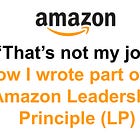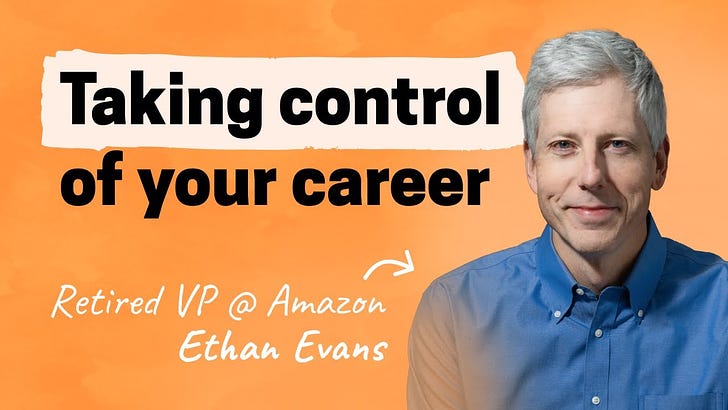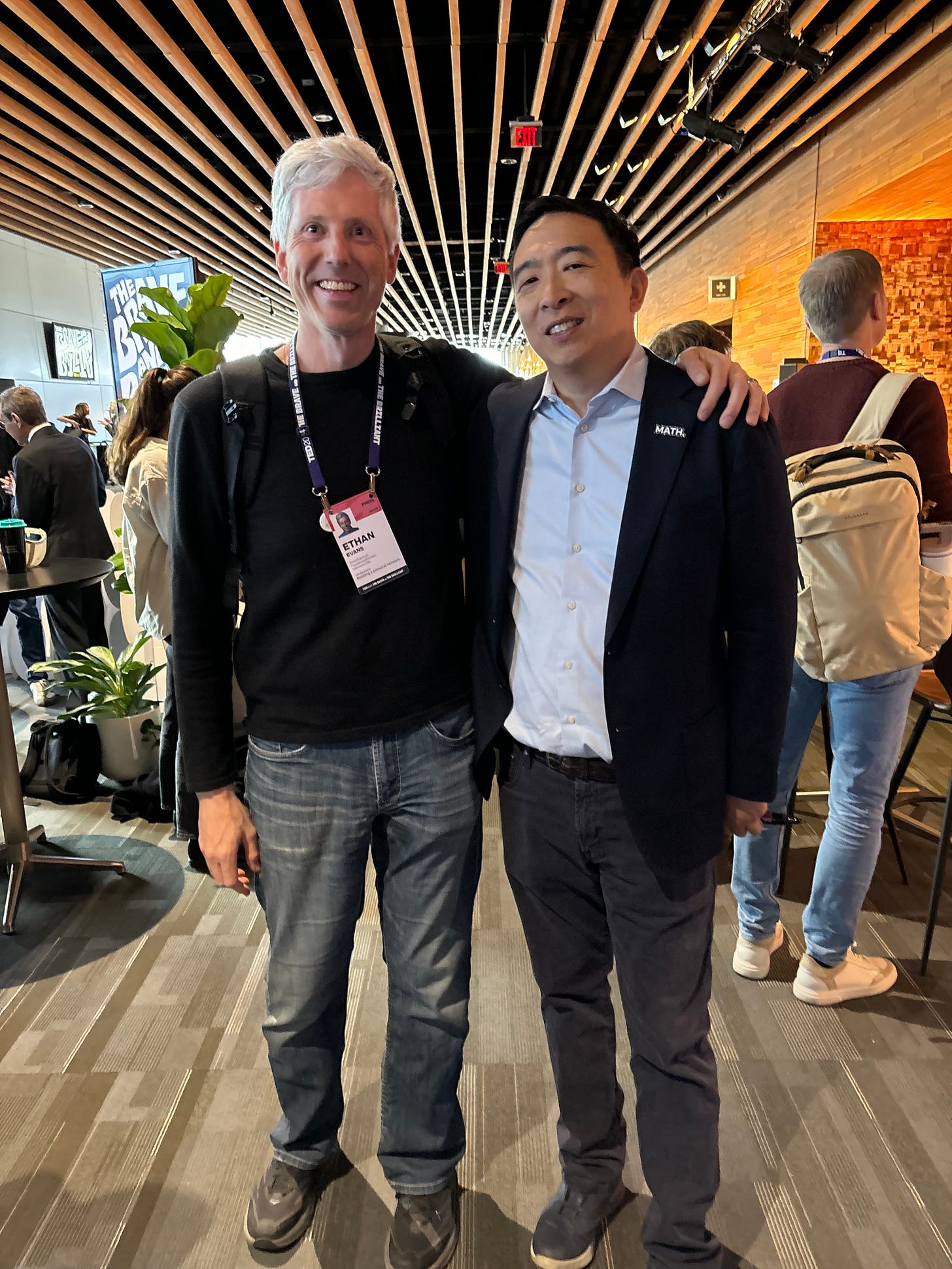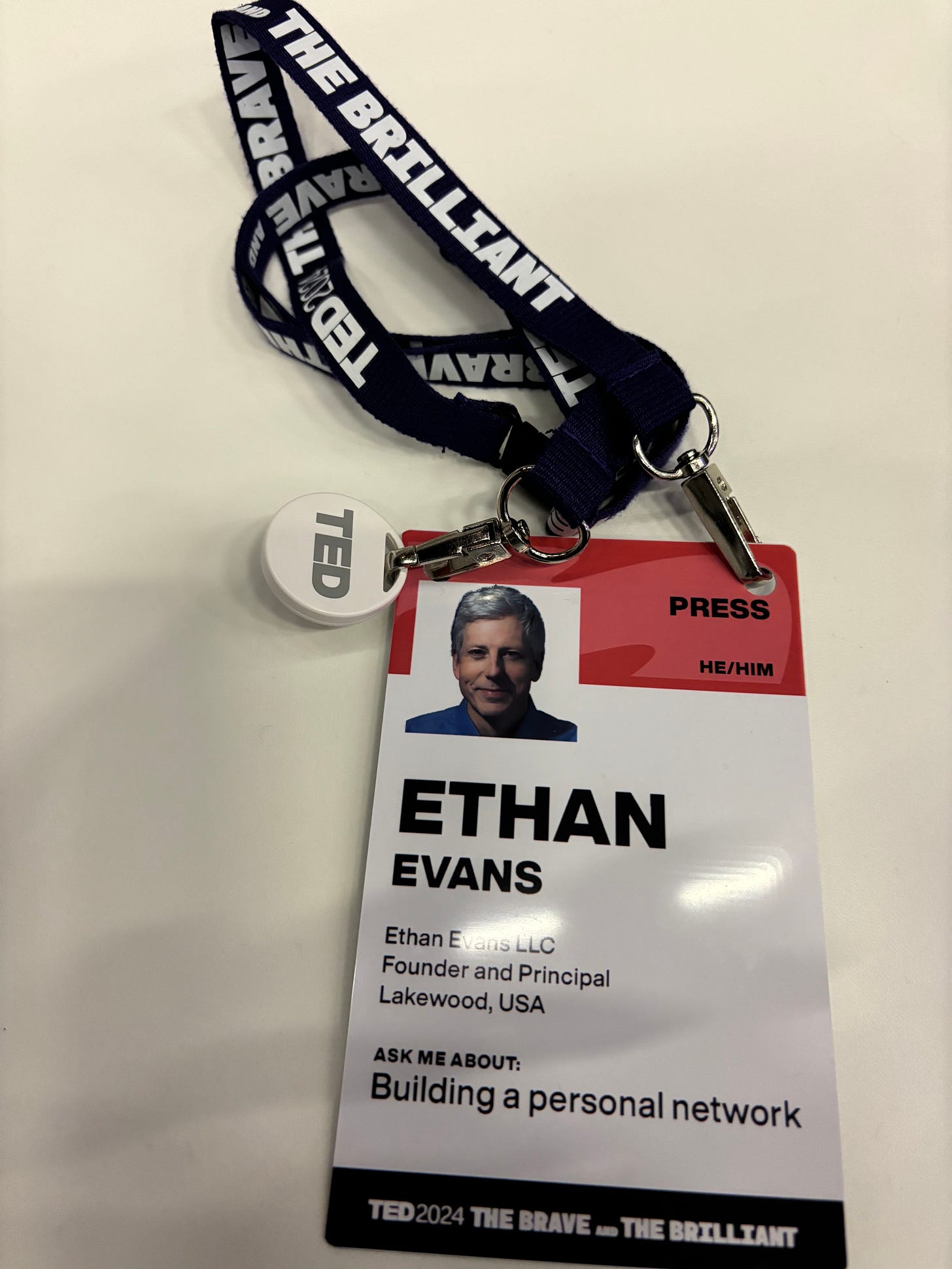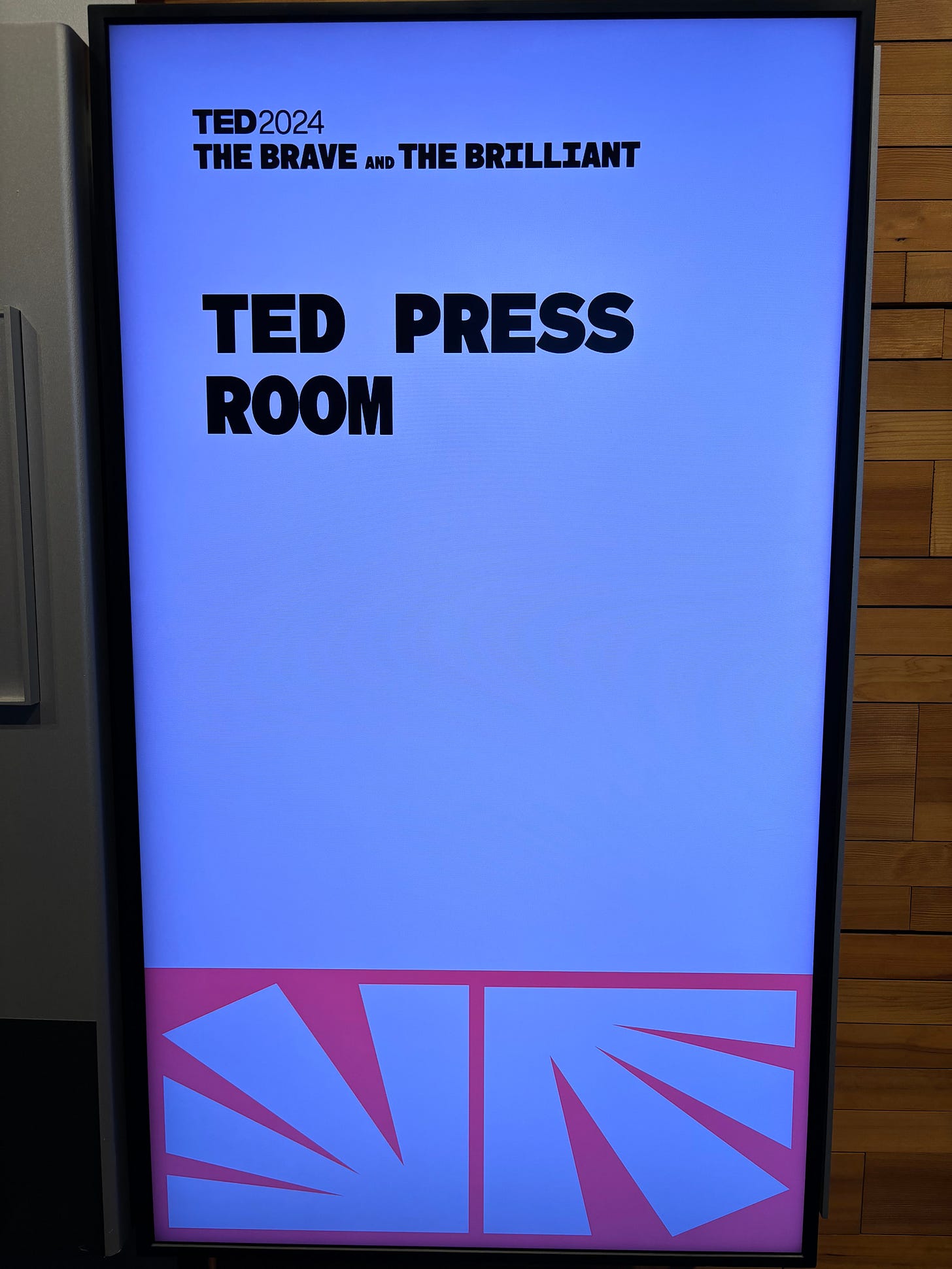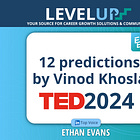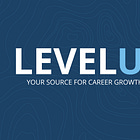Real employee ownership in a company
TED 2024 Day 2 Lesson: Employee-Owners
Welcome to Level Up: Your source for career growth solutions & community by retired Amazon Vice President, Ethan Evans.
"An owner never says 'that's not my job.'" When I added these words to the Amazon Leadership Principle (LP) — Ownership — I was talking about the mental attitude of taking responsibility for things.
Read about my Amazon LP story:
Listen/hear the story of how I helped advocate for and draft the words from my podcast discussion with Lenny:
There is a second type of ownership at work, actual employee ownership within the company.
Real financial ownership is essential if you want to see mental ownership from employees.
If you work at a company with good ownership, here is how you can leverage it.
If you do not, you may want to move.
If you are the founder, realize that one of the best tools to increase your equity is to share generously with others.
Working together to make the pie bigger is a much better strategy than hoarding a small pie to yourself.
At Amazon, when I wrote the "not my job" words, all office employees got stock and were thus employee-owners.
On my second day at the TED Conference, I listened to Pete Stavros, from private equity firm KKR, talk about how they try to ensure all portfolio companies provide this second kind of ownership: actual equity in the company, to their employees.
Stock ownership is relatively common in Silicon Valley and high tech, although even that is changing somewhat.
But Pete's firm invests in companies where it is very uncommon.
He gave one example of a company that made overhead garage doors. When they bought the company, 18 leaders had equity, but the rest of the 800 employees had nothing.
Pete found that 18% of employees in such situations actively "hate" the company they work for. They stay at a job only because they feel they must.
How productive can a company be when nearly 1 in 5 workers actually hates the company, and a majority are ambivalent or disengaged?
Pete works with the leadership of target companies to give every employee *free* stock ownership, on top of their existing pay, which is targeted to increase their compensation by 20%.
They also allocate money for the employees to spend on company improvements. In his example, over time the company used the money to add a nice break room, a cafeteria with healthy food, and a medical clinic to the factory.
Some might say, wait, this company was so bad it didn't have a break room or a cafe?
Remember, this was a small garage door manufacturer in the US Midwest, not the Google Campus!
We in high-tech and other wealthy, high-education industries can still learn from this example:
Ownership reduces turnover.
Ownership increases engagement.
Ownership aligns missions (making money together).
If you are at a company with a strong real ownership practice, lean into treating your team and teammates as owners.
If you are not at such a company, plan to make your next move to a place with real ownership.
And if you are (or want to be) a founder, start thinking about how to share ownership... *for your own good*.
Pete and KKR shared their model here.
Readers — are you an owner where you work?
Additional second day at TED insights.
Elizabeth Dunn, Professor at UBC: Donating to a charitable cause can have as much impact on your happiness as doubling your income (that stat is just amazing to me).
"The floodgates of nerditude have swung wide open." — Thomas Dohmke, CEO of GitHub, referencing the capabilities of their next-generation AI copilot which makes it possible to write large blocks of code without any knowledge of programming languages.
"AI is like Nuclear Fusion for the Brain." — Mustafa Suleyman, CEO of Microsoft AI, analogy to its power. I see the analogy as doubly true, both power and danger.
Day 2 ended with an incredible AI demo. An artist, Guo-Qiang Cai, who speaks only Chinese, presented his art speaking Chinese. A translator off-stage spoke the words in English, but AI rendered the words with Cai's voice and accent in real-time, so he appeared to speak native English to the audience, but with his voice (amazing).
TED will have two dedicated AI gatherings later this year, both in October: TED AI in San Francisco and TED AI in Vienna.
I've often said that you can learn how to be better at something by studying others doing that thing both well and poorly. At this point I've watched over 30 people give TED talks live. Some are brilliant public speakers, some are honestly not very good. I will speak with Briar Goldberg, Chief Coach for TED speakers on how to prepare for a TED Talk and high-stakes public speaking.
More on TED each day this week, stay tuned.
Close up on what my badge says.
Additional TED posts
If you are interested in leadership development, consider my courses:
Connect With Ethan
Level Up is your source for career growth solutions & community by retired Amazon Vice President, Ethan Evans.
Free members get 2 full newsletter articles a month on career growth solutions.
Paid members get 8 articles + exclusive access to ongoing live podcasts/events (e.g. career talks, watching live executive coaching with a real client, fireside chats w/leaders, career Q&A) + all video recordings (14+ hours of content to date) + a private Slack community for leadership networking.
Learn more and hear what members have to say:




